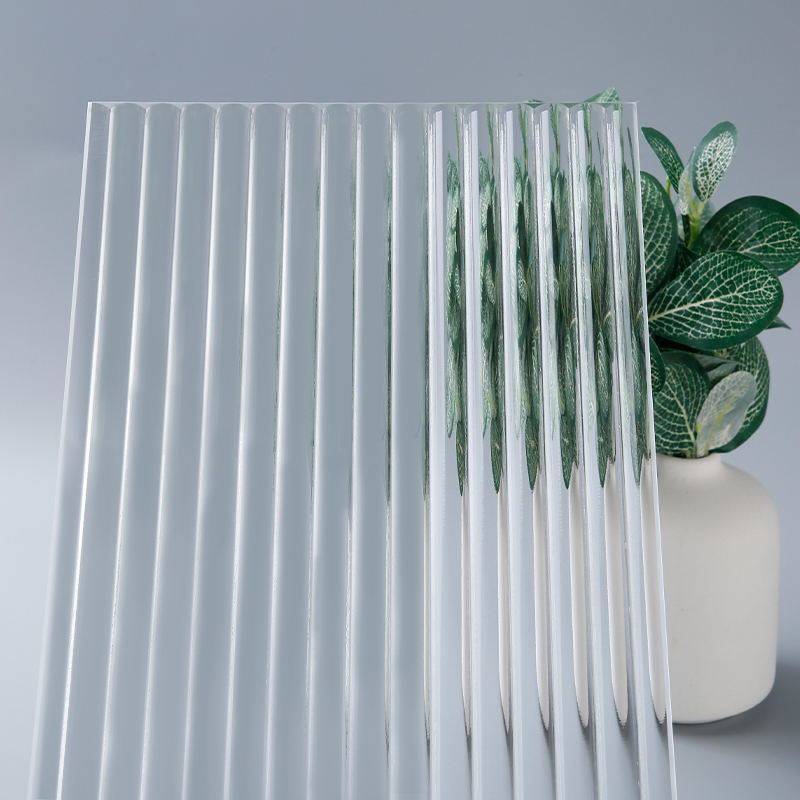Reflective Glass Enhancing Safety and Aesthetics
In today's fast-paced world, safety and aesthetics are paramount considerations in various architectural designs. Reflective glass, a versatile material that combines the benefits of transparency and reflectivity, has emerged as a popular choice for enhancing both these aspects. This article delves into the properties, applications, and advantages of reflective glass, providing insights into its role in modern construction projects.
Properties of Reflective Glass
Reflective glass is made by applying a thin layer of metal or dielectric material to the surface of conventional glass. This layer acts as a mirror, reflecting a significant portion of incoming light. The degree of reflectivity can be adjusted by varying the thickness and type of coating used. Reflective glass is available in a range of colors, including clear, blue, green, bronze, and gray, allowing designers to match it with their aesthetic preferences.
Applications of Reflective Glass
Reflective glass is widely used in a variety of applications due to its unique properties. One of its most significant uses is in the construction of commercial buildings, where it can be used as an effective barrier against solar heat gain. By reflecting sunlight, reflective glass helps maintain a comfortable indoor temperature, reducing the need for air conditioning, which in turn leads to energy savings.
In addition to its thermal benefits, reflective glass also enhances security by making it difficult for intruders to see inside a building
In addition to its thermal benefits, reflective glass also enhances security by making it difficult for intruders to see inside a building

In addition to its thermal benefits, reflective glass also enhances security by making it difficult for intruders to see inside a building
In addition to its thermal benefits, reflective glass also enhances security by making it difficult for intruders to see inside a building
 reflective glass
reflective glass. Its reflective surface makes it nearly impossible to see through, even from a close distance. This feature is particularly useful in high-security environments such as banks, government buildings, and museums.
Advantages of Reflective Glass
One of the key advantages of reflective glass is its ability to provide natural light while maintaining privacy. Unlike opaque materials like curtains or blinds, reflective glass allows sunlight to enter a room while still providing a sense of seclusion. This makes it an ideal choice for residential spaces, where。
Another advantage of reflective glass is its durability. The metallic or dielectric coating used to make it resistant to scratches, corrosion, and UV radiation, ensuring that it maintains its appearance and functionality for many years to come.
Conclusion
Reflective glass is a versatile and practical material that offers numerous benefits for both safety and aesthetics. Its ability to reflect sunlight, enhance security, and provide natural light while maintaining privacy makes it an invaluable asset in modern construction projects. As demand for sustainable and energy-efficient buildings continues to grow, reflective glass is likely to play an increasingly important role in shaping our built environment.
 Afrikaans
Afrikaans  Albanian
Albanian  Amharic
Amharic  Arabic
Arabic  Armenian
Armenian  Azerbaijani
Azerbaijani  Basque
Basque  Belarusian
Belarusian  Bengali
Bengali  Bosnian
Bosnian  Bulgarian
Bulgarian  Catalan
Catalan  Cebuano
Cebuano  Corsican
Corsican  Croatian
Croatian  Czech
Czech  Danish
Danish  Dutch
Dutch  English
English  Esperanto
Esperanto  Estonian
Estonian  Finnish
Finnish  French
French  Frisian
Frisian  Galician
Galician  Georgian
Georgian  German
German  Greek
Greek  Gujarati
Gujarati  Haitian Creole
Haitian Creole  hausa
hausa  hawaiian
hawaiian  Hebrew
Hebrew  Hindi
Hindi  Miao
Miao  Hungarian
Hungarian  Icelandic
Icelandic  igbo
igbo  Indonesian
Indonesian  irish
irish  Italian
Italian  Japanese
Japanese  Javanese
Javanese  Kannada
Kannada  kazakh
kazakh  Khmer
Khmer  Rwandese
Rwandese  Korean
Korean  Kurdish
Kurdish  Kyrgyz
Kyrgyz  Lao
Lao  Latin
Latin  Latvian
Latvian  Lithuanian
Lithuanian  Luxembourgish
Luxembourgish  Macedonian
Macedonian  Malgashi
Malgashi  Malay
Malay  Malayalam
Malayalam  Maltese
Maltese  Maori
Maori  Marathi
Marathi  Mongolian
Mongolian  Myanmar
Myanmar  Nepali
Nepali  Norwegian
Norwegian  Norwegian
Norwegian  Occitan
Occitan  Pashto
Pashto  Persian
Persian  Polish
Polish  Portuguese
Portuguese  Punjabi
Punjabi  Romanian
Romanian  Russian
Russian  Samoan
Samoan  Scottish Gaelic
Scottish Gaelic  Serbian
Serbian  Sesotho
Sesotho  Shona
Shona  Sindhi
Sindhi  Sinhala
Sinhala  Slovak
Slovak  Slovenian
Slovenian  Somali
Somali  Spanish
Spanish  Sundanese
Sundanese  Swahili
Swahili  Swedish
Swedish  Tagalog
Tagalog  Tajik
Tajik  Tamil
Tamil  Tatar
Tatar  Telugu
Telugu  Thai
Thai  Turkish
Turkish  Turkmen
Turkmen  Ukrainian
Ukrainian  Urdu
Urdu  Uighur
Uighur  Uzbek
Uzbek  Vietnamese
Vietnamese  Welsh
Welsh  Bantu
Bantu  Yiddish
Yiddish  Yoruba
Yoruba  Zulu
Zulu 

 In addition to its thermal benefits, reflective glass also enhances security by making it difficult for intruders to see inside a building
In addition to its thermal benefits, reflective glass also enhances security by making it difficult for intruders to see inside a building
In addition to its thermal benefits, reflective glass also enhances security by making it difficult for intruders to see inside a building
In addition to its thermal benefits, reflective glass also enhances security by making it difficult for intruders to see inside a building